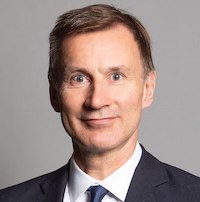By Mark McSherry
The UK’s public sector net debt (PSND ex) at the end of March 2023 was £2.53 trillion — around 99.6% of GDP, with the debt-to-GDP ratio at levels last seen in the early 1960s.
That’s according to the latest data from the UK’s Office for National Statistics (ONS).
The ONS data showed public sector net borrowing (PSNB ex) in March 2023 was £21.5 billion — £16.3 billion more than in March 2022, and the second-highest March borrowing since monthly records began in 1993.
Public sector net borrowing in the financial year ending March 2023 was initially estimated at £139.2 billion, the fourth-highest full year borrowing since records began in 1946. Nonetheless, that was £13.2 billion less than forecast by the Office for Budget Responsibility (OBR).
Public sector current budget deficit (PSCB ex) in the year to March 2023 was initially estimated at £87.4 billion — £15.8 billion more than in the year to March 2022 and the sixth-highest full-year budget deficit since records began in 1946.
The ONS data showed the interest payable on UK debt increased to £106.6 billion in the year to March, £34 billion (46.9%) more than full year 2022 as the rises in the Retail Prices Index increased the interest payable on index-linked gilts.
The financial year saw the two highest ever monthly amounts on record for debt interest payable in June (£20 billion) and December (£18 billion) 2022.
UK finance minister Jeremy Hunt said: “These numbers reflect the inevitable consequences of borrowing eye-watering sums to help families and businesses through a pandemic and Putin’s energy crisis.
“We cannot borrow forever. We now have a clear plan to get debt falling which will reduce the financial pressure we pass onto our children and grandchildren.”
The Institute of Chartered Accountants in England and Wales (ICAEW) said the UK public sector net debt is equivalent to £37,000 for every person in the UK.
REACTION:
Alison Ring, director of public sector and taxation at the Institute of Chartered Accountants in England and Wales (ICAEW): “Today’s data for the financial year to March 2023 emphasises just how weak a state the public finances are in, with debt now approaching an eye-watering £90,000 per household.
“The UK is still running big fiscal deficits, with a provisional shortfall between receipts and spending of £139 billion in 2022/23, while public debt over the past three financial years has grown by £715 billion or almost 40 per cent to £2.53 trillion.
“The UK Government’s financial position remains precarious, with high debt and limited headroom against its fiscal rules that reduce our resilience to future economic shocks.
“An ageing population, underperforming public services and a worsening global security situation are all putting pressure on Government spending, even as taxes rise.
“What is most concerning is weak public investment after the government constrained spending to meet its short-term fiscal objectives, for example in scaling back HS2.
“Unfortunately, this will restrict economic growth in the medium and long-term, and will also delay much-needed investment in the quality and cost-efficiency of public services.”
Victoria Scholar, Head of Investment, Interactive Investor: “UK public sector net borrowing in March hit £21.5 billion, rising £16.3 billion year-on-year to reach the second highest March borrowing figure since records began in 1993. In the financial year ending in March borrowing hit £139.2 billion, £13.2 billion below the OBR’s forecast.
“While total public spending rose £18.3 billion year-on-year, it also came in below the OBR forecast. Public sector net debt at the end of March was £2,530.4 billion or around 99.6% of GDP with a debt-to-GDP ratio at levels last seen in the early 1960s.
“Full-year central government expenditure rose by 8.3% year-on-year impacted by rising inflation and energy costs. Debt interest payments also rose by 46.9% year-on-year driven by higher interest payable on index-linked gilts because of the rise in the RPI. However central government receipts rose by 10.5% thanks to strong growth in VAT, income taxes thanks to record self-assessed taxes and higher corporation taxes.
“Better-than-expecting borrowing and spending figures will provide a boost to the government which has been focusing on controlling spending and enhancing tax revenues since the chaos around the mini-budget. However full-year government revenues were £4.1 billion below OBR forecasts, highlighting the tough macroeconomic backdrop.”
